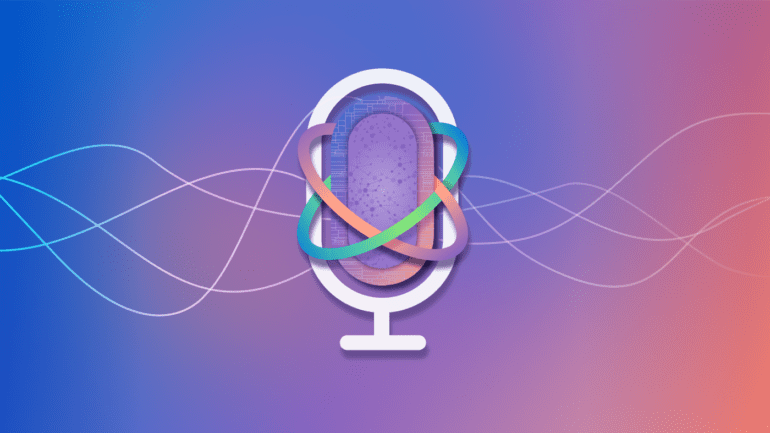TL;DR:
- Podcast networks, including Acast, iHeartMedia, and Spotify, are embracing AI tools for translation and ad sales.
- iHeartMedia is using AI for translating podcasts into various languages, aiming to expand globally.
- Spotify is piloting AI-generated voice translations to enhance audience reach and monetization.
- Acast’s Collections+ AI tool automates podcast categorization, facilitating ad sales and collaboration.
- AI assists in podcast production, from research to content creation, with human oversight.
- NPR is cautious about AI integration, recognizing its potential but refraining from immediate adoption.
Main AI News:
In the rapidly evolving landscape of digital media, it is not just major publishers like BuzzFeed and BDG that are turning to generative artificial intelligence tools to revolutionize their sales strategies. Podcast networks such as Acast, iHeartMedia, and Spotify are also harnessing the power of AI to optimize their outreach to potential clients, diversify their content offerings, and facilitate seamless translations into various languages.
For Translation
iHeartMedia, a prominent player in the podcasting industry, is currently exploring a range of generative AI tools to translate select podcasts from their archives into multiple languages. This endeavor aims to tap into international markets and cater to a more diverse audience. The specifics of the AI companies involved in this venture remain undisclosed; however, the technology employed will encompass transcription, translation, and even voice synthesis. Quality testing of these translations will be conducted, featuring both AI-generated voices and the original hosts’ voices.
By leveraging AI for translation, podcast networks are poised to make their mark on a global scale, breaking free from the confines of a predominantly U.S.-centric medium. iHeartMedia’s ambitious plans include the launch of five to ten translated shows in languages such as Spanish, French, German, and Italian by the end of this quarter. These shows are likely to encompass evergreen, general interest content as well as limited series, although specific show titles and potential AI disclaimers remain undisclosed.
Similarly, Spotify is also embarking on a journey with generative AI to facilitate podcast audio translation. In September, the company initiated a pilot program in collaboration with select podcasters, focusing on AI-generated voice translations into various languages. Despite the challenges posed by such technology, Spotify remains committed to helping creators connect with global audiences and monetize their content.
For Ad Sales
Acast, following the integration of AI tools into their self-serve advertising platform last summer, has experienced a significant shift in their podcasters’ engagement with advertisers. Nearly 40% of podcasters who previously had limited direct interactions with advertisers are now actively involved in this facet of the industry. This transformation is attributed to Collections+, an AI-powered tool that automatically categorizes podcasts based on podcast and listener data from various sources, including Podchaser, a database acquired by Acast in 2022. By grouping podcasts contextually, Acast can tailor offerings to meet advertisers’ specific requirements, fostering more efficient and fruitful collaborations.
Acast’s Chief Business Officer, Greg Glenday, revealed that the company is presently collaborating with a national advertiser on a multi-million-dollar campaign, though the advertiser’s identity remains confidential. In a groundbreaking move, Acast employed AI technology to demonstrate to the advertiser the benefits of purchasing 52 shows reaching the same target demographic, but with increased scalability and lower CPMs. This innovative approach not only preserved the advertiser’s budget but also simplified the process by eliminating manual labor, making AI a substantial and practical medium for expanding revenue.
For Production Assistance
Generative AI tools are proving to be invaluable resources for podcasters in various stages of production. These tools aid in tasks such as research, scripting, editing, and content publication. iHeartMedia, for instance, is collaborating with podcast producers to assess AI tools like Jasper and Microsoft Copilot as research and writing assistants, supplemented by human oversight. As these experiments move from theory to practical implementation, AI’s role in enhancing production efficiency becomes increasingly evident.
Acast is also exploring the possibilities of using generative AI to assist podcast creators in outlining production schedules over specific timeframes. Moreover, predictive AI models are being considered to identify emerging content trends and podcast listener demographics, ultimately guiding strategic decisions, including network expansion.
Not All-Encompassing
While the podcasting industry is undoubtedly embracing AI innovations, it’s crucial to recognize the limitations of this technology. Gina Garrubbo, President and CEO of NPR subsidiary National Public Media, acknowledged AI’s potential impact on content creation, commercial messaging, and audience targeting in the podcasting domain. However, NPR is exercising caution and has yet to delve into the specifics of how AI might be integrated into their operations.
Conclusion:
While AI promises significant enhancements across various facets of podcasting, it is essential to remember that it cannot replace the unique qualities of human talent, particularly podcast hosts. The industry remains dedicated to exploring AI as a valuable assistant to producers and executives, rather than as a complete disruptor of the media landscape. As we move forward, AI will undoubtedly play a pivotal role in reshaping the podcasting landscape, offering new opportunities for growth and innovation.

